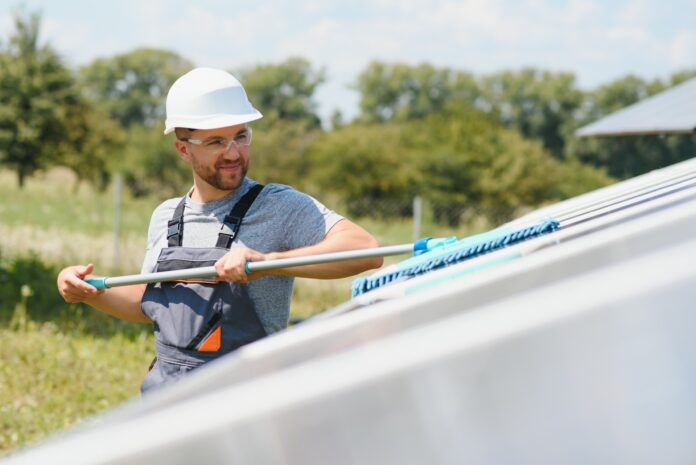Moss growth on roofs cannot only detract from your home’s appearance but also cause damage if left unchecked. It’s crucial to remove moss promptly to prevent it from lifting shingles, trapping moisture, and potentially leading to leaks. Here’s a detailed guide on the best methods to remove moss from your roof effectively and safely.
1. Safety Precautions
Before starting any moss removal process, prioritize safety:
- Use Proper Equipment: Ensure you have a stable ladder, safety harness, and non-slip shoes.
- Weather Conditions: Choose a dry day to prevent slipping hazards.
- Protective Gear: Wear gloves, safety goggles, and a dust mask to protect yourself from debris and chemicals.
2. Inspect Your Roof
Before removing moss, inspect the roof for any signs of damage such as cracked tiles, loose shingles, or rusted flashing. Address these issues before cleaning to avoid exacerbating them.
3. Choose the Right Removal Method
The method you choose depends on the severity of the moss growth and the type of roofing material:
- Soft Brushing: Suitable for lightly moss-covered roofs. Use a soft-bristled brush to gently scrub away moss without damaging the shingles.
- Pressure Washing: Effective for more extensive moss growth, especially on concrete tile or metal roofs. Use a low-pressure setting to avoid damaging the shingles or tiles.
- Chemical Treatments: Moss-specific cleaners are available that can be applied to kill and loosen moss. Always follow manufacturer instructions and use sparingly to minimize environmental impact.
4. Methods of Moss Removal
- Manual Removal: Start by manually removing larger clumps of moss with a brush or plastic scraper. Take care not to damage the shingles or tiles.
- Soft Washing: Apply a moss-killing detergent solution using a garden sprayer. Let it sit for the recommended time to kill the moss, then gently rinse off with low-pressure water.
- Pressure Washing: If using a pressure washer, set it to a low pressure (less than 1000 psi) and keep the nozzle at least 12 inches away from the roof surface. Work in a consistent pattern to avoid lifting shingles.
5. Post-Removal Care
After removing moss, consider these preventative measures:
- Install Zinc or Copper Strips: These can be installed near the ridge of your roof to prevent future moss growth, as they release ions that inhibit moss and algae.
- Trim Overhanging Branches: Reduce shade and debris accumulation by trimming tree branches that hang over the roof.
- Regular Maintenance: Schedule periodic inspections and cleanings to catch moss growth early and prevent reoccurrence.
6. Environmental Considerations
- Runoff Control: Ensure that runoff from cleaning does not harm plants or contaminate water sources. Use environmentally friendly moss cleaners whenever possible.
7. Professional Help
If you’re unsure about tackling moss removal yourself or have a particularly steep or complex roof, consider hiring a professional roof cleaner. They have the expertise and equipment to clean your roof safely and effectively.
Removing moss from your roof is essential to maintain its integrity and appearance. By following these methods and safety precautions, you can effectively remove moss and prevent it from causing further damage. Regular maintenance and prompt removal of moss are key to prolonging the life of your roof and preserving your home’s value.
Taking care of your roof not only enhances curb appeal but also protects your investment in your home. With the right approach and tools, moss removal can be a manageable task that ensures your roof remains in excellent condition for years to come.

